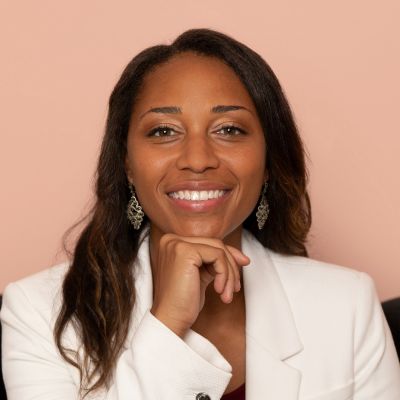
Dr. Leah N. Claiborne
University of the District of Columbia
Washington, D.C.
Teaching at an HBCU (Historically Black Colleges and Universities) comes with a lot of responsibilities — something Dr. Leah N. Claiborne, Associate Professor at the University of the District of Columbia, understands and embraces. “It’s an incredible honor to teach at an HBCU that was initially founded for the purpose of educating young Black women,” she says. “Black American contributions are woven into the fabric of this country, and HBCUs honor and acknowledge the whole American story in all disciplines. While I had no idea that after graduating from the University of Michigan that I would be teaching at an HBCU, it was an obvious choice because I knew that my research would not only be welcomed, but it would be celebrated with an already long history of great scholarship on Black American music.”
While many predominately white institutions across the country have struggled in recent years to incorporate underrepresented voices in their curriculum, “it is expected that our students’ recitals, their history classes and their literature courses includes the voices of Black Americans,” Claiborne explains. “It is expected because there is an understanding that the HBCU community honors the full story of American music — a story that cannot be told fully unless it honors the contributions of Black Americans.”
Claiborne also spreads the message of diversity, equity and inclusion (DEI) as the Director of DEI for the Francis Clark Center and the co-chair of the DEI track of the National Conference of Keyboard Pedagogy (NCKP). She joined the editorial committee of “American Music Teacher,” the journal of the Music Teachers National Association (MTNA) and proposed a column dedicated to sharing best practices of DEI efforts across the country, and having a dedicated area for teachers to share their transformative work within their communities. “The best part of writing is the feedback from colleagues across the country. After I write an article, I wonder if anyone will read this or think that this work is important,” Claiborne says. “Then once it is published, my heart swells with feedback from teachers.”
While she was still studying at the University of Michigan, Claiborne conceptualized Ebony Music, an organization that shines a spotlight on Black classical pianists and Black composers of piano music. “Representation is so vitally important in all stages of musical development, and in the area of piano, there has historically been very little representation of Black classical pianists and music by Black composers on the great performance stages in the country and across the world,” she said. “I often wonder what it would have been like if I not only had the opportunity to learn music by Black composers, but also see Black pianists on the concert stage.”
Claiborne says her greatest joy is when she hears her community speak about Black composers in the same way they speak about Bach, Beethoven or Brahms. “We need to move past the performance and education of underrepresented composers simply because they are underrepresented,” she says. “When we discuss, perform and write about this music because of its impact in our field, we honor the voices who created it. It’s a gift for me to be part of this historic journey of honoring voices and sharing them with my communities.”








